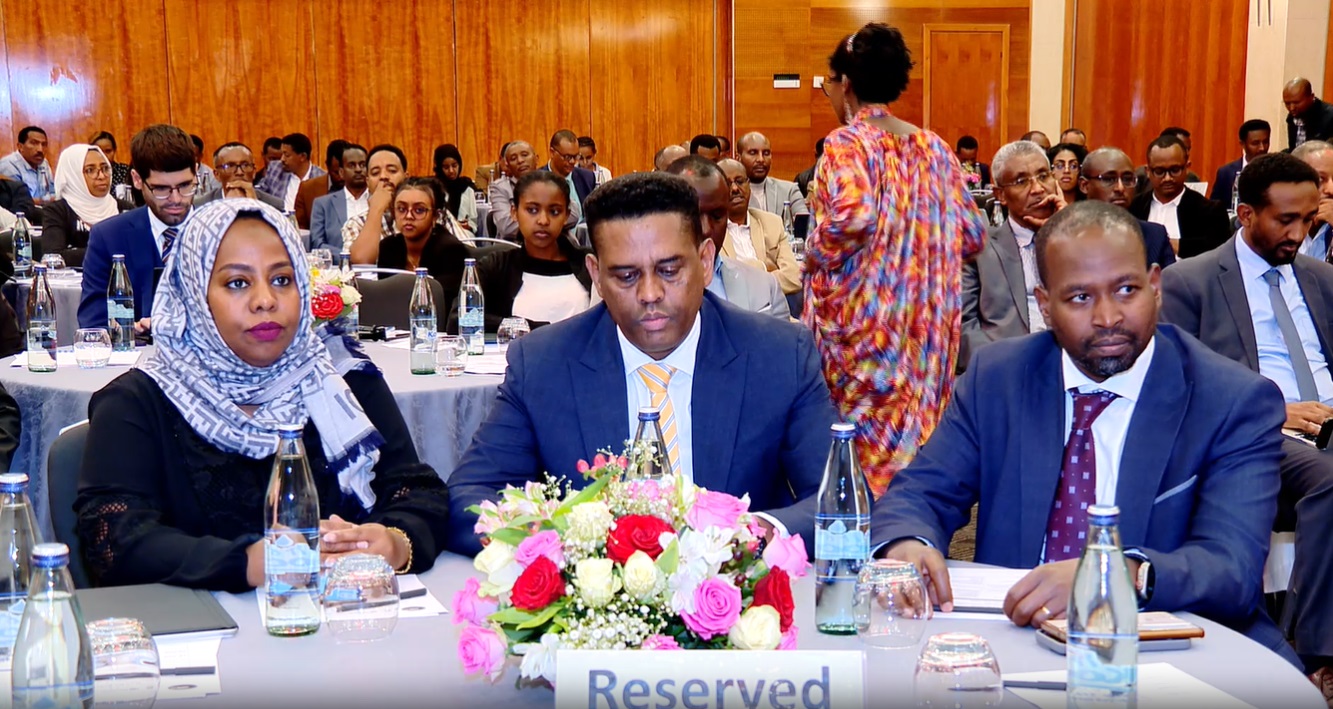Ethiopia Conducts Last Validation Workshop on Implementation of AfCFTA - ENA English
Ethiopia Conducts Last Validation Workshop on Implementation of AfCFTA

Addis Ababa, June 20, 2025 (ENA)— The last validation workshop of Ethiopia's African Continental Free Trade Area (AfCFTA) Implementation Strategy was conducted today with a view to finalizing the roadmap for the country's engagement with the free trade area.
The workshop, jointly organized by the United Nations Economic Commission for Africa (UNECA) and Ministry of Trade and Regional Integration, brought together diverse stakeholders.
In his opening remarks, Trade and Regional Integration Minister Kassahun Gofe said the validation workshop is one of the significant milestones in Ethiopia’s journey to implement the AfCFTA agreement that secures the country's national interest and mitigate risk as well as fully harness the potential from the continental market.
According to him, the signing and ratification of the AfCFTA Agreement in 2019 represented a clear shift from a historically cautious trade position toward a more opening up and opportunity driven approach to the continental trade.
"Ethiopia has always viewed the AfCFTA not merely as a trade agreement, but as a development compact that enables us to re-imagine our economy, diversify our partnerships, and build new opportunities across Africa," he emphasized.
The strategy validated today is deeply integrated with Ethiopia's Homegrown Economic Reform Agendas, particularly the second phase, which focuses on structural reforms to enhance resilience, promote private-sector-led development, and modernize the economy.
The minister further pointed out the recent liberalization efforts, including the 2024 law allowing foreign banks, the 2021 liberalization of the telecommunications sector, and the lifting of foreign ownership restrictions in logistics and transport as foundational steps attracting global expertise and improving trade efficiency.
"HEGER (Homegrown Economic Reform) 2.0 places regional integration at the heart of Ethiopia’s transformation strategy," he stated, adding that unlocking export potential and achieving industrialization necessitates integration with African and global markets.
Kassahun also shared insights into Ethiopia's robust economic growth, with an impressive 8.1 percent GDP growth rate in the 2023/24 fiscal year and export earnings surpassing 8 billion USD, an "extraordinary" achievement in Ethiopia's trading history.
Despite this, he acknowledged a significant trade deficit, emphasizing the need for enhanced productivity and deeper trade integration through frameworks like AfCFTA.
The minister concluded by reiterating call for action: "This is not a ceremonial milestone, it is a call to action. From this point forward, we must implement with purpose—through coordination, investment, monitoring, and shared accountability."
He affirmed Ethiopia's determination not only to participate in the AfCFTA but also to shape its evolution and ensure it delivers real impact for citizens and for the continent.
Policy Study Institute Director-General Fikadu Tsega on his part said the draft strategy has been reviewed by technical experts and the National Implementation Committee.
Series of discussions with multiple stakeholders from government, private sector, non-governmental organizations, and multilateral institutions were also conducted.
According to him, implementation of the strategy requires a coordinated effort among the respective stakeholders at multiple levels, a continuous follow-up and support.
‘‘PSI will continue to support the implementation of the strategy and the agreement in any way possible at its capacity and cost,’’ the director-general promised.